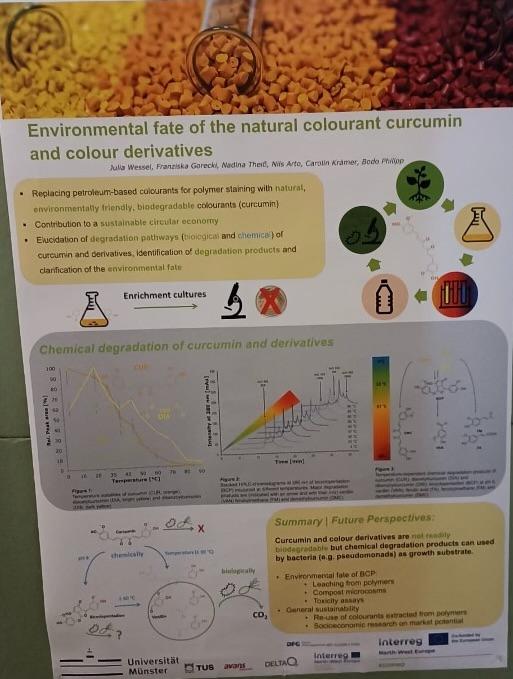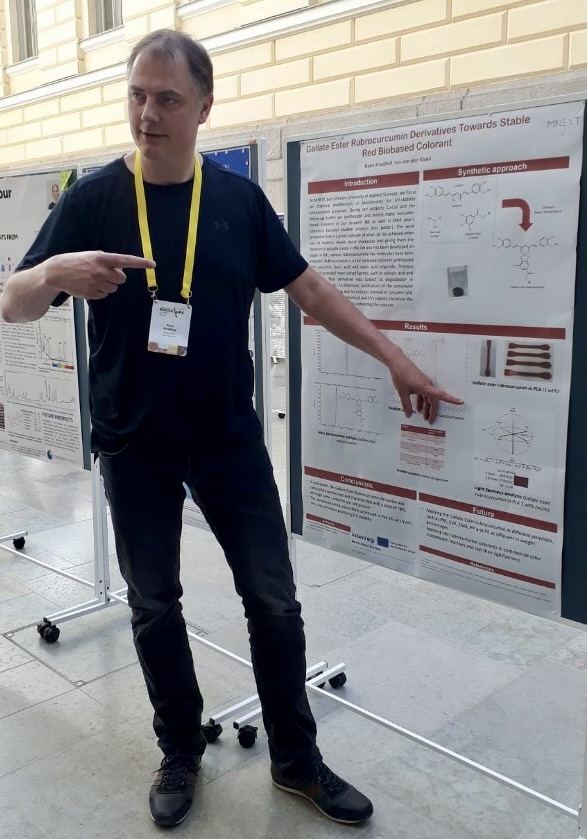Building on previous research from the Interreg NWE project CurCol, the ECOPRO project developed a series of next steps. Focusing on enhancing the stability of colorants under thermal and ultraviolet (UV) stressors and in turn, preparing the materials for industrial colour master batch testing and commercialisation.
As part of this initiative, researchers at Avans University of Applied Sciences have successfully developed several further red colour variants derived from curcumin, all based on natural products of which one red colourant shows remarkable colour stability properties. While large-scale production of these colourants is currently in progress, the team has encountered some challenges related to the purification of colourants. Fortunately, they have devised an optimised purification process that has significantly increased the purity level of the colourants, reducing the presence of starting material—curcumin—to less than 1%.
Despite advancements, stability and purification issues still affect some of the new developed red colourants. Ongoing tests are being conducted to determine whether these potential candidates containing a small percentage of curcumin, can meet industry standards as their production methods are more cheap and require less energy to produce. Should these tests prove successful, efforts to ramp up the production of this colourant will commence.
Over the summer, members of the project team participated in several conferences to share their findings and raise awareness about their work. During the Kompost Festival, Prof. Bodo Philipp from the University of Münster highlighted the ECOPRO project in his presentation titled "The Microbiology of Composting." Additionally, he presented a poster showcasing the environmental impact of natural colorant curcumin and its derivatives was presented by project partner WWU at the VAAM 2024 conference.


In June, Dr. Kees Kruithof, Avans project partner attended the Biocolour 2024 conference in Helsinki. During this event, a poster was showcased that focused on gallate ester rubrocurcumin derivatives as stable bio-based red colorants. Networking opportunities at these conferences resulted in several new connections between researchers from various universities and companies involved in the production and sale of bio-based colorants, including NIG Natural Dyes.
The ECOPRO project continues to progress toward its goal of developing sustainable, stable, and environmentally friendly colorants for various applications, paving the way for innovation in the use of natural colorants in industry.